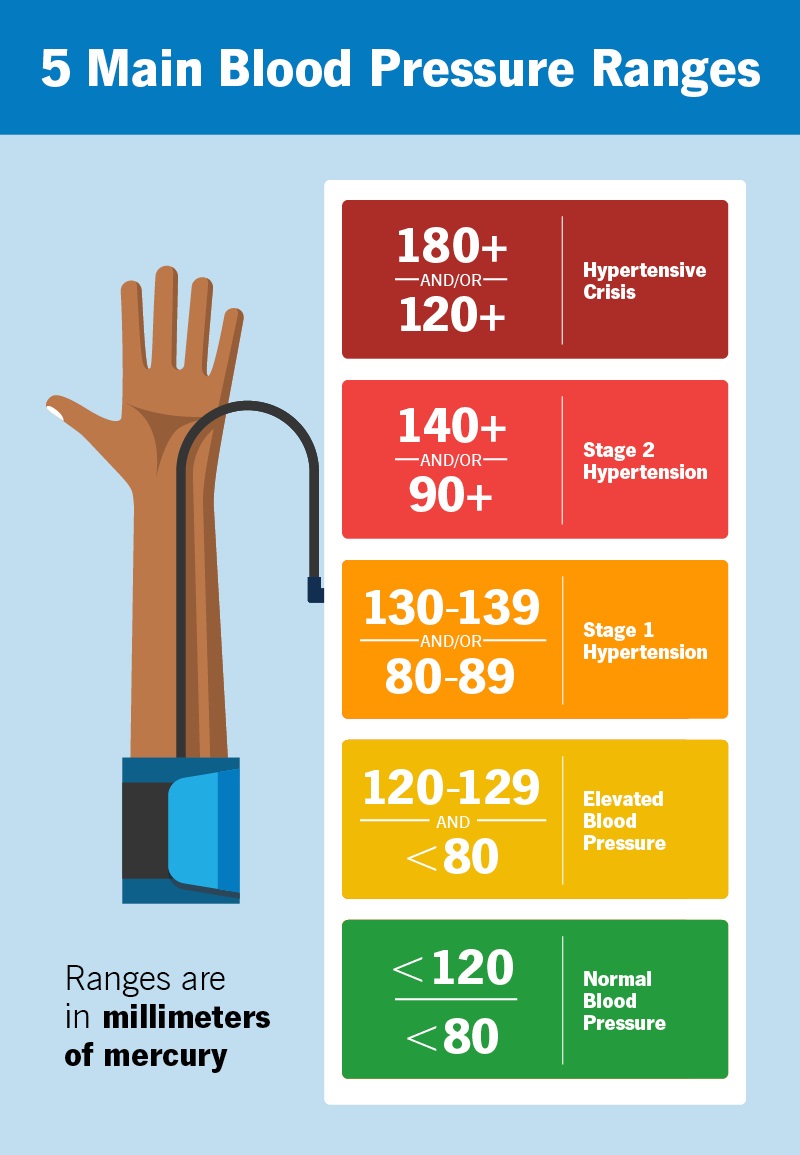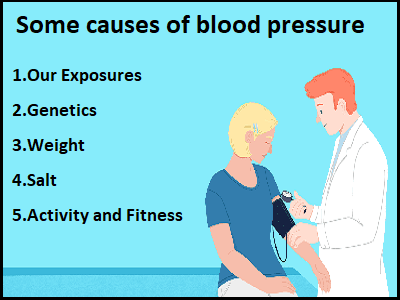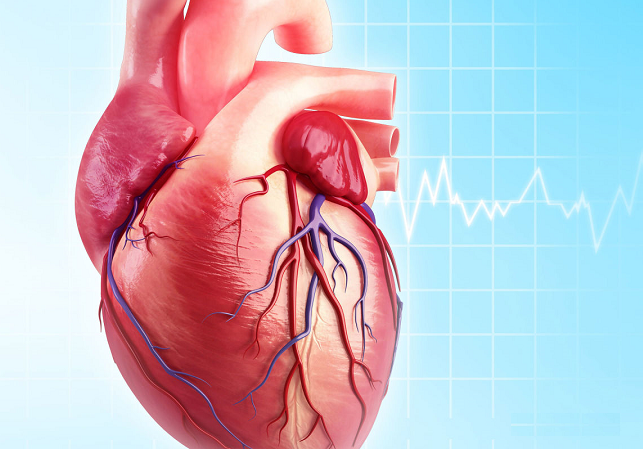
BLOOD PRESSURE
Blood pressure is a vital sign that measures the force of blood against the walls of the arteries as the heart pumps it throughout the body. It is expressed in two numbers: systolic and diastolic pressure. The systolic pressure, the higher of the two numbers, measures the force when the heart beats and pumps blood. The diastolic pressure, the lower number, measures the force when the heart is at rest between beats. Blood pressure is typically recorded in millimeters of mercury (mm Hg) and a normal blood pressure reading is generally considered to be around 120/80 mm Hg. Blood pressure that consistently measures 140/90 mm Hg or higher is classified as high blood pressure, or hypertension.
High blood pressure/ Hypertension
Hypertension is a significant health concern because it puts extra strain on the heart and blood vessels, which can lead to serious health issues over time, including heart disease, stroke, and kidney damage. It is often termed the “silent killer” because it may not present noticeable symptoms until it has caused considerable damage. Regular monitoring and management of blood pressure are crucial for maintaining overall health and preventing complications.
INTRODUCTION
High blood pressure, or hypertension, is commonly associated with lifestyle factors such as poor diet, lack of exercise, and obesity. However, it’s possible for even individuals who lead a fit and healthy lifestyle to experience elevated blood pressure. This phenomenon can be surprising, as it seems to contradict the common belief that fitness equates to good cardiovascular health. Understanding why fit people can still suffer from hypertension involves exploring a range of factors beyond mere physical fitness. These factors include genetic predispositions, stress, dietary habits, age, underlying health conditions, and even the impact of certain medications. Addressing high blood pressure in fit individuals requires a holistic approach that considers these various influences.
CAUSES of high blood pressure in physically fit people

Even individuals who are fit and maintain a healthy lifestyle can experience high blood pressure due to several factors. Here’s a closer look at some potential causes:
- Genetic Predisposition: Genetics play a crucial role in determining blood pressure. Some people may have a hereditary tendency towards hypertension, regardless of their fitness level. Family history of high blood pressure can increase the risk.
- Chronic Stress: Ongoing stress can lead to elevated blood pressure. High stress levels, whether due to work, personal life, or other factors, can cause temporary or persistent increases in blood pressure, even in individuals who are otherwise healthy.
- Dietary Factors: Consuming high levels of sodium (salt), caffeine, or alcohol can contribute to high blood pressure. Even if someone is physically fit, dietary habits can significantly impact blood pressure levels.
- Sleep Quality: Conditions like sleep apnea or poor sleep quality can lead to high blood pressure. Good fitness doesn’t always guarantee optimal sleep, which is crucial for maintaining healthy blood pressure levels.
- Age: Blood pressure tends to rise with age. As individuals get older, their arteries can become stiffer, leading to increased blood pressure, even if they are fit and healthy.
- Underlying Medical Conditions: Certain health conditions, such as hormonal imbalances (e.g., thyroid disorders, adrenal gland issues) or kidney problems, can cause elevated blood pressure. These conditions can affect blood pressure independently of physical fitness.
- Body Composition: While physical fitness is important, body composition also plays a role. A high muscle mass or certain body fat distributions can influence blood pressure.
- Medications and Supplements: Some medications, including certain over-the-counter drugs, prescription medications, or supplements, can elevate blood pressure as a side effect. It’s important to review any new substances with a healthcare provider.
- Genetic Factors: In some cases, genetic mutations or variations can predispose individuals to high blood pressure, regardless of their overall health and fitness levels.
- Hydration Status: Dehydration can sometimes lead to temporary increases in blood pressure, as the body tries to maintain fluid balance and blood pressure levels.
PREVENTIONS of high blood pressure
Preventing high blood pressure, especially for physically fit individuals, involves a holistic approach that addresses lifestyle, diet, and overall health. Here are some effective strategies:
- Balanced Diet:
- Reduce Sodium: Limit salt intake to help control blood pressure.
- Increase Potassium: Eat potassium-rich foods like bananas, oranges, and spinach, which can help balance sodium levels.
- Healthy Fats: Incorporate sources of healthy fats such as avocados, nuts, and olive oil, while limiting saturated and trans fats.
- Whole Foods: Focus on whole grains, fruits, vegetables, and lean proteins.
- Regular Exercise:
- Moderation: While regular exercise is beneficial, avoid overtraining. Ensure a balance between workouts and rest.
- Variety: Engage in a mix of aerobic activities (like running or cycling) and strength training for overall cardiovascular health.
- Stress Management:
- Relaxation Techniques: Practice stress-reducing activities such as meditation, yoga, or deep-breathing exercises.
- Work-Life Balance: Maintain a healthy balance between work, exercise, and leisure.
- Adequate Sleep:
- Quality Sleep: Aim for 7-9 hours of good-quality sleep per night to support overall health and regulate blood pressure.
- Avoid Smoking:
- Quit Smoking: If you smoke, seek support to quit, as smoking can significantly impact blood pressure and overall cardiovascular health.
- Regular Monitoring:
- Check Blood Pressure: Regularly monitor your blood pressure, especially if you have a family history of hypertension or other risk factors.
- Manage Weight:
- Healthy Body Weight: Maintain a healthy weight range. Even for fit individuals, extreme fluctuations in weight can impact blood pressure.

MEDICATION
Herbal remedies can complement traditional approaches to managing blood pressure, but they should be used with caution and ideally under the guidance of a healthcare provider. Some herbs have been studied for their potential to support cardiovascular health and help manage blood pressure. Here are a few commonly discussed options:
- Garlic:
- Effects: Garlic is believed to have blood pressure-lowering properties due to its ability to improve blood vessel dilation.
- Forms: Available in fresh, dried, or supplement form.
- Hibiscus:
- Effects: Hibiscus tea has been shown to have a modest blood pressure-lowering effect in some studies.
- Forms: Typically consumed as tea or in supplement form.
- Hawthorn:
- Effects: Hawthorn is thought to help with cardiovascular health by improving blood flow and reducing blood pressure.
- Forms: Available as tea, capsules, or extracts.
- Olive Leaf Extract:
- Effects: Contains compounds that may help reduce blood pressure and improve cardiovascular health.
- Forms: Typically taken as a supplement.
- Green Tea:
- Effects: Green tea has antioxidant properties and may have a mild effect on lowering blood pressure.
- Forms: Consumed as tea or in supplement form.
- Flaxseed:
- Effects: Rich in omega-3 fatty acids and fiber, flaxseed may help lower blood pressure.
- Forms: Can be consumed as ground seeds or in oil form.
- Beetroot:
- Effects: Beetroot is high in nitrates, which can help relax blood vessels and improve blood flow.
- Forms: Consumed as juice, powder, capsule or in whole form.
Considerations and Precautions:
- Consultation: Always consult a healthcare provider before starting any herbal remedy, especially if you are on medication or have underlying health conditions.
- Interactions: Some herbs can interact with medications or other supplements, potentially affecting their efficacy or causing side effects.
- Quality: Choose high-quality, reputable sources for herbal products to avoid contaminants and ensure proper dosage.
This Article is for Basic Information. Contact a professional doctor before using it.
HAKEEM KARAMAT ULLAH
+923090560000




